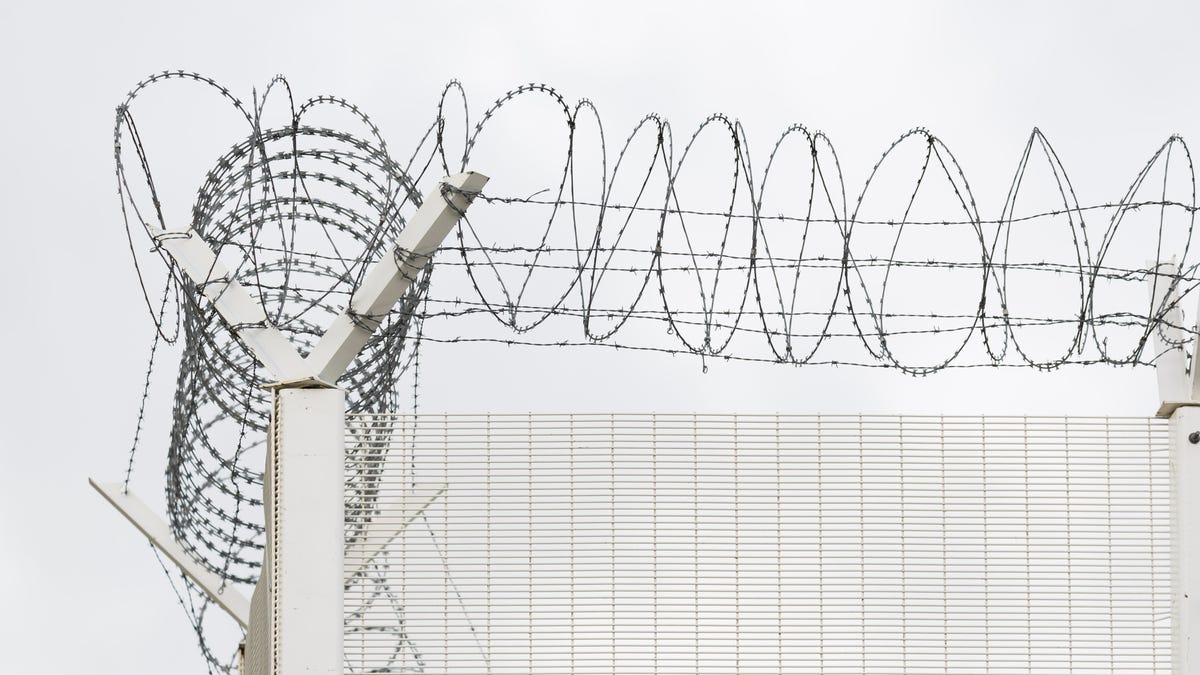Calais: A bleak end of the line for refugees in France
Commentary: For Road Trip 2016, I visited refugees in northern France who are trying to reach the UK. I found a grim city that has become both a fortress and a prison.

This is part of our Road Trip 2016 summer series "Life, Disrupted," about how technology is helping with the global refugee crisis -- if at all.
Editors' note: On October 24, French police began to clear refugees out of the Jungle as a prelude to demolishing the camp. Earlier in the year, we visited the facility. This story describes what we found.
When I saw the 15-foot fencing on the side of the highway, I was pretty sure I was nearing Calais, France.
When I saw police vans blocking the off-ramps, I knew I'd arrived.
For three hours that night, I'd followed signs directing me toward the Channel Tunnel, which connects Calais with Folkestone in the southwest corner of the UK. The tunnel -- and the link to the UK it represents -- has drawn roughly 5,000 refugees to Calais, on the northern coast of France.
It's the unwelcome presence of those refugees -- from Sudan, Afghanistan, Syria and other war-torn countries -- that's militarized this otherwise drab city. A city known only for its train station has been transformed into a fortress.
Fortress Calais.
Workers string new razor wire along a highway next to the Jungle refugee camp.
The martial atmosphere is ever-present. As my colleague Rich Trenholm and I interviewed refugees at the Jungle, a grimy camp that houses about 6,000 refugees and migrants, crews strung razor wire on a double line of white fences. Workers cleared brush, removing hiding places, as a national police unit patrolled the area.
Already the fences are wreaking havoc. They're so high they impair radio signals that the Refugee Info Bus, a volunteer operation that provides free Wi-Fi in the Jungle, uses to distribute its network. Concrete barriers, erected to direct drivers from the city's original roads, have disrupted traffic. Google Maps and
The barriers are working.
Every night, hundreds of refugees head from the Jungle onto the roads of Calais. On our first morning there, we watched dozens trudge dispiritedly back to the Jungle after failing to sneak onto trucks headed for the train station, where they hoped to catch the train to the UK.
The Jungle can look something like a ghost town because so many refugees, exhausted from their nighttime excursions, sleep during the day. Photos and videos also look depopulated because most refugees don't want to be identified until they reach the UK and try to claim asylum.
The gloom is infectious.
Here's the odd thing. Even as the physical and political barriers rise, technology is lowering others.
Phones have helped, becoming powerful tools for survival and assimilation. They let refugees navigate with online maps, translate language they don't understand and communicate with friends and family at home and in places they're trying to reach.
They use phones to research asylum laws and contact aid agencies. Apps like Duolingo help them learn new languages.
Our trip to the refugee camp in Calais and another in Grande-Synthe near Dunkirk came as I was winding down five years of living in France.
I'd grown used to the country's wonders: Renaissance chateaus, fertile farmlands, art museums, charming medieval towns, fresh food and time to appreciate it. The French have perfected the good life.
It's a very different experience for the thousands of refugees crammed into the Jungle's collapsing tents and the shipping containers that have become makeshift homes. In the Jungle, France is a country of misery, boredom, frustration, anger, apprehension and squalor.
For them, it's a prison.
Prison Calais.
First published August 10.
Updated October 24 at 5:50 a.m. PT: Added an editors' note to reference the start of the closure of the Jungle as police began moving refugees out.

